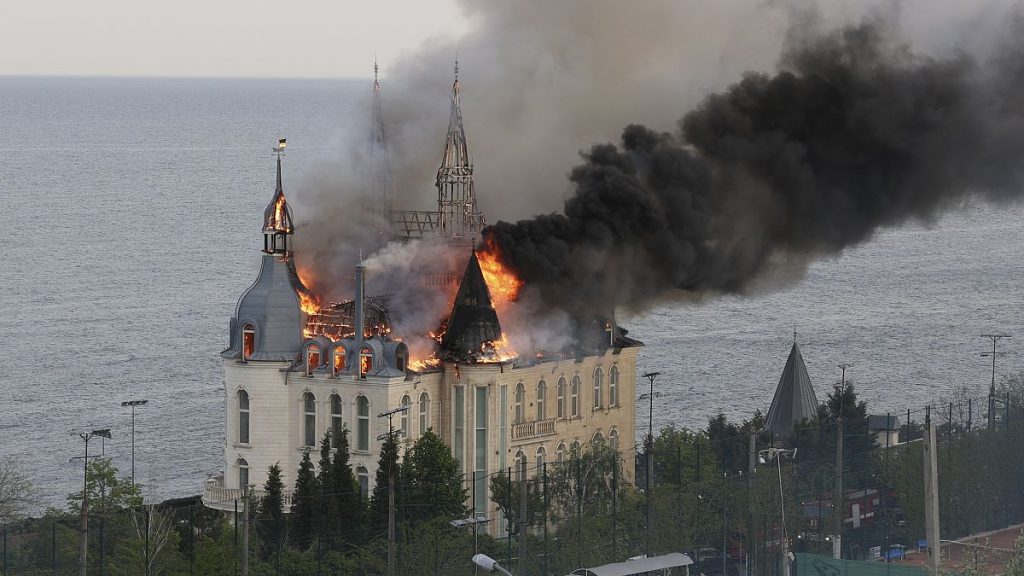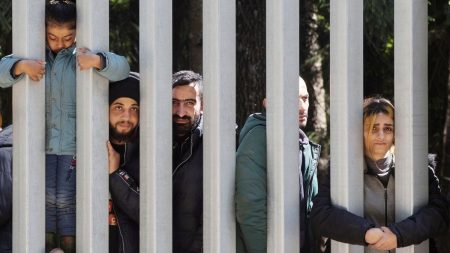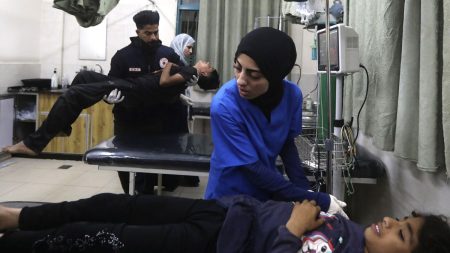Ukrainian authorities condemned a Russian missile strike on a architectural landmark in Odesa, calling it a “war crime”. The attack resulted in the deaths of at least four people and caused significant damage to the building, known locally as the “Harry Potter Castle”. Emergency services worked to extinguish the severe blaze that followed the strike, which left residents with little time to seek shelter before the attack. Investigation into the type of missile used in the strike is ongoing, with authorities labeling it as another war crime committed by Russia.
NATO Secretary General Jens Stoltenberg visited Kyiv and acknowledged that the alliance had not delivered support to Ukraine as promised in a timely manner, allowing Russia to take advantage of battlefield opportunities. Despite this, Stoltenberg assured Ukrainian President Volodymyr Zelenskyy that support was forthcoming. Ukrainian forces continue to struggle against Russia on the battlefield, with the commander-in-chief stating that the situation has worsened, leading to withdrawals from positions in the Donetsk region. The ongoing conflict in Ukraine has resulted in significant challenges for civilians, particularly in terms of injuries sustained from landmines and unexploded ordnance.
Officials at the 27th International Meeting of Mine Action in Geneva highlighted the difficulties faced by civilians living in conflict or post-conflict environments, such as Ukraine. Paul Heslop, the Programme Manager for Mine Action at UNDP Ukraine, noted the high number of individuals in their 20s and 30s who have been injured in the conflict, often resulting in multiple amputations. The UN estimates that around 60 million people in 60 countries live in constant fear of stepping on landmines or unexploded ordnance left behind from conflicts. The challenges faced by these individuals underscore the need for continued support and assistance in addressing the aftermath of conflicts.
The missile strike on the architectural landmark in Odesa is just one of many incidents that have occurred as part of the ongoing conflict between Ukraine and Russia. The failure of NATO to provide promised support to Ukraine has allowed Russia to gain advantages on the battlefield, leading to increased tensions and casualties. The situation in Ukraine continues to worsen, with Ukrainian forces facing significant challenges in combating Russian aggression. The international community has a responsibility to address the humanitarian consequences of the conflict, particularly in terms of the impact on civilians and the use of landmines.
The conflict in Ukraine serves as a reminder of the devastating impact of war on civilian populations and the need for immediate and sustained support to address the humanitarian crisis. The international community must work together to provide assistance to those affected by the conflict, including the provision of medical care and support for individuals injured by landmines and unexploded ordnance. Efforts to mitigate the impact of conflict on civilian populations must be a central priority for governments and humanitarian organizations, in order to prevent further suffering and loss of life.
As the conflict in Ukraine continues to escalate, it is crucial for the international community to come together to address the root causes of the conflict and work towards a peaceful resolution. The ongoing violence and loss of life in Ukraine highlight the urgent need for diplomatic efforts to end the conflict and prevent further escalation. By providing immediate support to those affected by the conflict and working towards a peaceful resolution, the international community can help to alleviate the suffering of civilians in Ukraine and ensure a more stable and secure future for the region.















